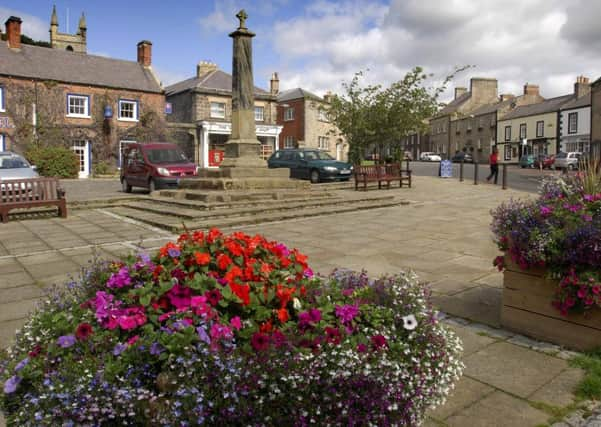Northumberland, History Society


Each member brought a photograph of themselves as a baby or young child. These were displayed and we tried to put names to faces. It proved more difficult than imagined, although some were easier than others to identify.
Stories and anecdotes about babies, names and baptisms were contributed, as were memories of customs that seem to have died out.
Advertisement
Hide AdAdvertisement
Hide AdThe tradition of ‘christening pieces’ or ‘ammas’ was explained. There were many variations. It involved the christening party giving a gift of bread, cheese and spice-cake to the first person of the opposite gender who was met on their way to or from church.
It seems to have been a Northern and Scottish custom. One member remembered receiving such a gift as a young child in Morpeth. Silver coins continue to be given to babies.
The dead child of a second marriage was in one case buried with the first wife so that it did not lie alone. Prams were not bought until after the birth, and many people continue to observe this.
Belford Burial Register records the burial of a child “Anonymous Johnson”, aged one, who had never been baptised.
Advertisement
Hide AdAdvertisement
Hide AdOur earliest memories were discussed, with one member recalling lying in her pram and gazing at the design.
Women dying in childbirth was not unusual in the past, and one can understand the reasoning behind the baptism of a surviving child at the funeral of the deceased mother. A couple of such instances have been found within the ancestry of one member.
However, perhaps there is another reason. A book of folklore states that it was done as an assurance that whatever was good in the deceased person was transferred to the child, and was most likely to enter the child during baptism. This belief was recorded by the minister of a Northern colliery village in the 19th century.
It was common in villages for the midwife to also have the role of laying out deceased persons.
The next meeting is on February 17, at 10am, when Chris Hunwick, archivist at Alnwick Castle, will tell us about the documents held there. Everyone welcome.